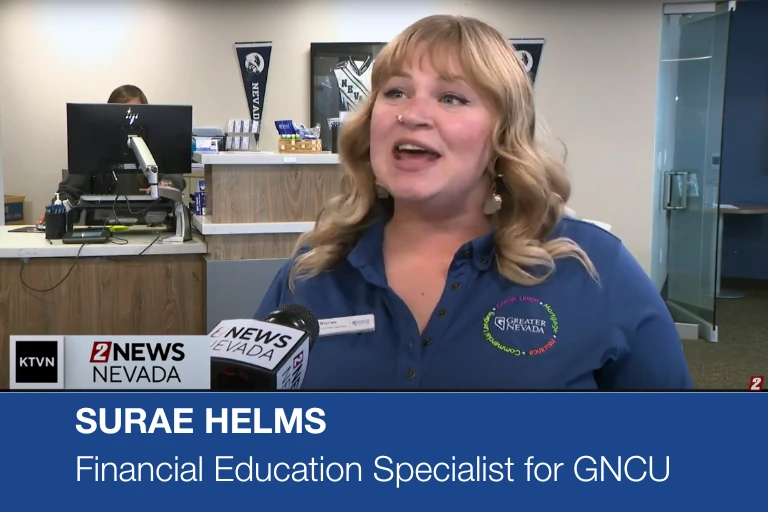Surae Helms, Financial Education Specialist at Greater Nevada Credit Union, Shares Tips to Teach Kids About Finances

Good habits start from an early age, but it can be difficult for parents to know where to begin with teaching children smart financial habits for long-term success. In recognition of Teach Kids to Save Day, GNCU has outlined four steps to make the (financial literacy) “talk” a bit easier to navigate.
GNCU’s Financial Education Specialist, Surae Helms, was recently featured in a news segment on KTVN 2 News Nevada. Watch the segment or read below to hear GNCU’s top tips for setting your child up for financial success. for the top tips for setting your child up for financial success.
Talk About Wants and Needs
While it’s important to show children how to save, teaching them the why behind saving helps the action become ingrained. Distinguishing the difference between wants, like toys or games, and needs, such as food, shelter and clothing, helps create a hierarchy to frame savings around.
Set Savings Goals Together
Once a child understands how to save money, they can start forming the habit by working towards a greater goal. Saving for a want, like a new bicycle, creates an incentive to stay engaged and be accountable. Help them find out how much and how long they’d need to save to meet their goal using GNCU’s savings goal calculator.
Keep Track of Spending
Have children track their spending, whether through an app or pen and paper, to stay on the course to their goals. Tracking their spending habits, especially if they receive an allowance, is a financially healthy habit to start before paychecks begin to roll in.
Set a Great Example
Saving for retirement, starting an emergency fund or even saving as a family for a big trip shows children that what they’re learning is important, and that adults save, too. Money can be a taboo subject, but creating an open space to discuss finances and practicing good habits alongside children sets a strong foundation for lifelong financial health.
Financial literacy is a skill people benefit from throughout their lives, and teaching children about money helps set them up for a future of wellness. GNCU offers a variety of accounts and options to allow parents to open up savings and checking accounts for kids 17-years-old and younger. Parents can visit a branch or explore options online at GNCU.org. Most accounts only require a minimum account balance of only $5 to help them learn the ins and outs of saving.

